When two Kathals (jackfruits) of the Uncle Hong breed go missing from the house of the local MLA, the police force of a town called Moba is immediately mobilised to locate them. The jackfruits, weighing fifteen kilograms each, are a prized possession of the MLA who had promised the Chief Minister a pickle of the same in hopes of getting a better position for his political career.
Most of the police force is filled with apathy at the complaint of the theft of two jackfruits. Regardless, they begin complying actively by deprioritising other cases as this theft registers as a high-profile case. However, the only one perplexed at the absurdity of the entire situation is Sanya Malhotra’s character – Mahima Basor, the inspecting officer.
Mahima, at the cross-sections of caste and gender, is introduced as an inspector who spear-headed the capture of a major local criminal but is deprived of due recognition in a press conference. Her competence, outspokenness and constant confusion are meant to serve as the moral compass for the audience and the self-awareness that the police force lacks.
However, instead of pushing the refreshing awareness and empathy brought in by a person from a marginal identity while they look on at a mediocre, discriminatory, desensitised, and corrupt police force filled with upper-caste folks, the film chooses to induct Mahima in a half-baked satire with a reductive lens on caste and gender oppression in professional and personal spaces.
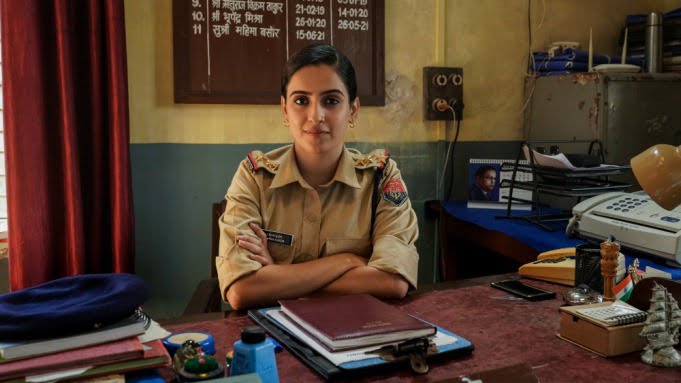
Director Yashowardhan Mishra’s debut falls into the same pitfalls of media aiming to show the casteist rot plaguing most institutions in India; it reduces larger systemic issues to just jibes about one’s caste, which is in some capacity, ‘resolved,’ by the righteous actions of the hero by the end of the film.
By adopting the self-referential ‘Jim from The Office-looking-at-the-camera‘ medium for Mahima’s character, the film could have attempted to showcase the role played by savarna individuals in maintaining the flawed system through the lens of a character from the margins, giving greater agency. Instead, the incompetence and insubordination of Mahima’s team of constables is played off for laughs with Mahima’s character pushed in the background.
Instead of pushing the refreshing awareness and empathy brought in by a person from a marginal identity while they look on at a mediocre, discriminatory, desensitised, and corrupt police force filled with upper-caste folks, the film chooses to induct Mahima in a half-baked satire with a reductive lens on caste and gender oppression in professional and personal spaces.
Mahima is also shown to be in a relationship with a constable, Saurabh Dwivedi. Their caste difference and her position as his boss are of serious concern to Saurabh’s family, who have refused to allow their marriage. In the course of the film, Mahima attempts to find the ‘stolen‘ kathals and through this, aims to negotiate a promotion to her own level, for her boyfriend who has failed several attempts of arriving at the same himself. She hopes to damper the caste-ridden emasculation Saurabh’s family feels at his lower position.
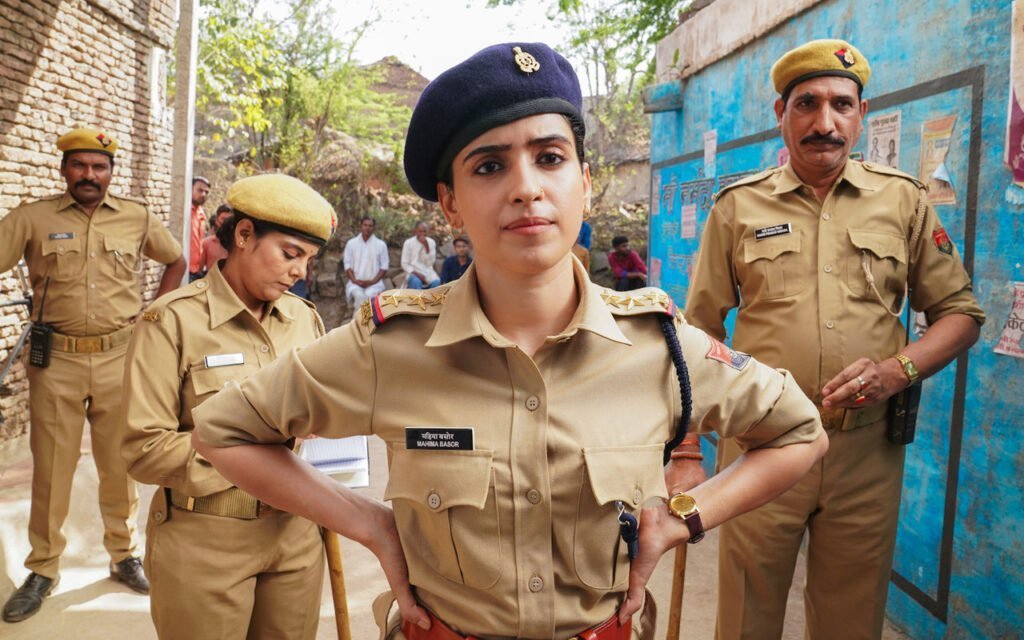
Once again, the film’s undertaking of how Mahima navigates an inter-caste relationship could have been a focal point but is subdued by the incessant need for tone-deaf humour, slap-stick comedy and simplistic call-outs of misogyny and casteism.
Satire that makes only some laugh
The film begins by aiming to satire the apathy of the police force when tasked with an unimportant case in contrast to Mahima’s forthright protests against it. This is best exemplified through a song from the film called ‘Mathura mein rehna hai to radhe radhe kehna hai‘, which showcases how the police inspectors at the helm of affairs see no option but to comply with the wishes of superior authorities.
However, the satirising mission remains complacent at best because it never explicitly takes up the role of caste in maintaining that apathy. Instead, the aim of ‘keeping it light‘ is prioritised in the making of the film where the quirks and antics of the characters become prominent.
The plot moves forward as Mahima uncovers the MLA’s gardener as the prime suspect in the case of the missing jackfruits. However, the film takes a different turn when she finds out that the gardener himself wished to lodge a complaint regarding his missing daughter, Amiya.
Mahima, under pressure from her superiors to deprioritise the urgent case of the missing girl and to wrongly incriminate the gardener as the ‘thief‘ of the jackfruit, devises an ingenious method to pursue the more important case while also avoiding public scrutiny and the ire of her bosses.
She claims that the jackfruits were stolen by the gardener’s daughter and finding her was the priority to ensure that the kathal could be found. She redirects police energy to the location of a lowered caste girl in the face of a high-profile case through her clever scheme. In her path, she encounters various hurdles like uncompliant villagers who refuse to help because they view Amiya as ‘a clever girl,’ who wears ripped jeans and eats Madhushree tobacco.
However, the portrayal of the problems caused by its own search team is insidious. For instance, Govind Pandey’s character Constable Mishra is not only a casteist and corrupt police officer but he sleeps on the job and is more concerned with his own lost car than the task at hand.
While this would have been the perfect opportunity to showcase the privilege of full impunity that upper-caste men enjoy in the police force, the film instead turns his character into comic relief. His negligence causes the girl’s kidnappers to get away and results in a final scene where the police confront the kidnappers by throwing vegetables at them. An ‘action scene,’ played for the laughs begs the question of ‘who is laughing?’
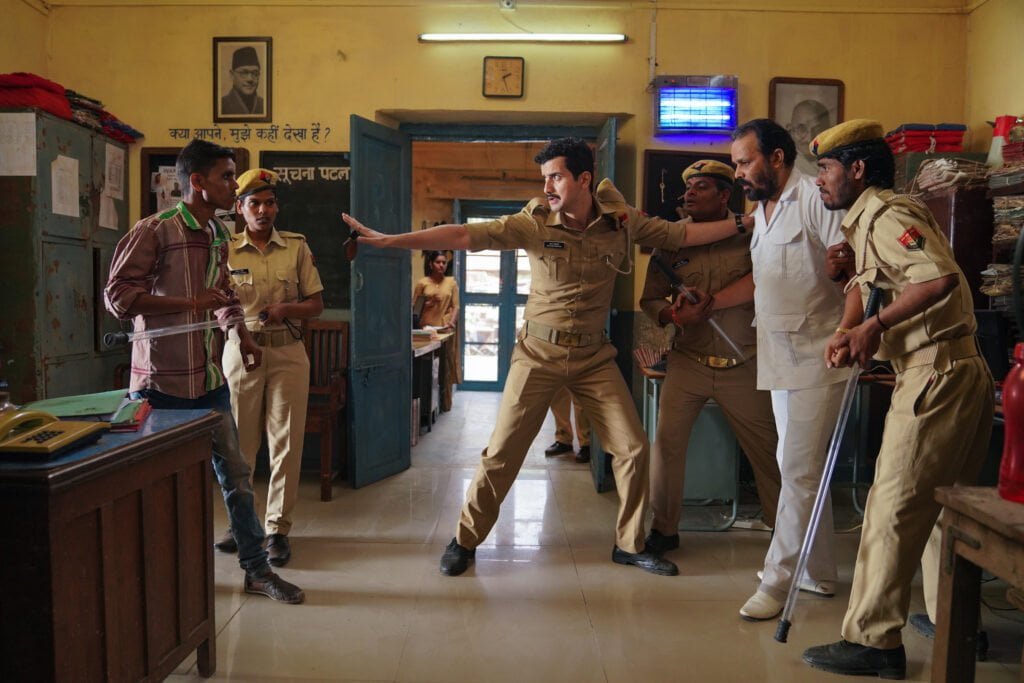
By reducing Mishra to a mere silly and incompetent man, instead of an aggressor perpetuating caste privilege, the film rests in the comfort of never offering serious critique or consequences to characters of the upper caste. What was meant as a satire of large institutions and behaviours instead trivialises the struggles of a whole community. Mahima’s frustrations and distress are likened to the tiredness at a goofy prank.
The audience doesn’t share a sarcastic chuckle as we witness institutional and everyday casteism that has been fully naturalised. The audience laughs at the funny vegetable fight. The film’s production thus wholly engages in making caste issues easy to swallow for savarna audiences.
The plot-lines that stood out in ‘Kathal’
The film takes up several plot points that remain underdeveloped or prematurely resolved. Mahima’s relationship with Saurabh is not an easy one. She not only faces external pressure for the same but is also shocked when she witnesses Saurabh exert unjustified brutality at poor people and dismiss the gardener when he first brought in the case of his missing daughter.
While this navigation of casteism in romantic relationships could have been explored in a better manner, the film chose to resolve these fundamental problems through a grand gesture that Saurabh pulls for Mahima.
Similarly, the film attempts to expose the unwarranted suspicion towards lowered-class folk that is predominant in most middle and upper-class households. The ‘theft‘ of the jackfruit is immediately attributed to the gardener even though he was at the receiving end of maltreatment and humiliation from the MLA he worked for. However, the real ‘thief‘ of the jackfruit is revealed in a post-credit scene and is meant to be merely a humorous revelation instead of a clever incorporation in the film.
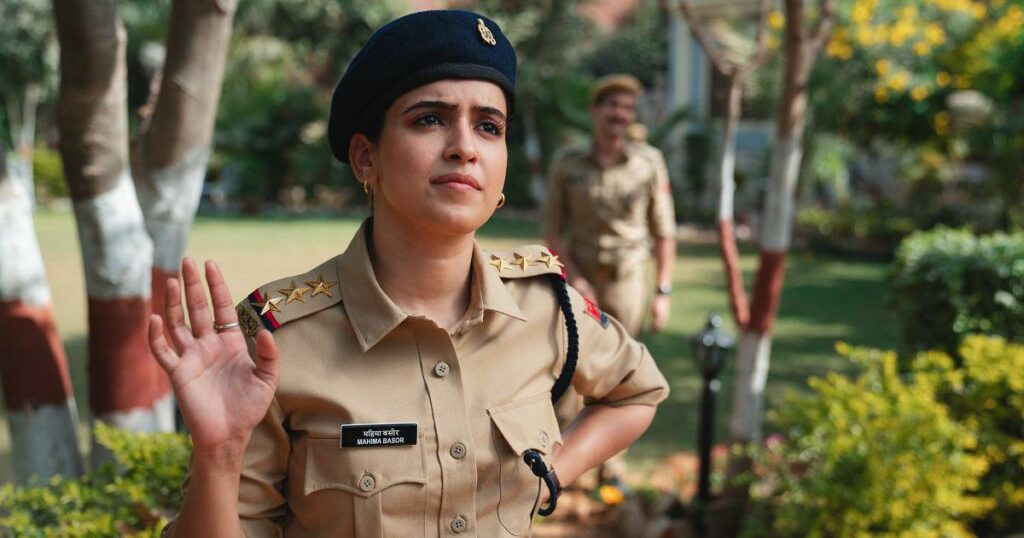
Mahima’s character and her social location are also severely mistreated in the film. Her response to the challenges she faces is shown as reactionary to one-on-one instances of misogyny or casteism. Her initial exasperation at the system is displaced and she is shown in Superhero-esque poses ‘clapping back‘ at individuals such as an inspector who suggestively eats a popsicle in front of her or a villager who makes a casteist remark during her investigation.
Moreover, Mahima is shown to come to peace with the system in many ways. Despite misleading the investigation for the jackfruit, she faces no penalty in court and instead is applauded for her integrity. The film implies that judicial processes will side with your noble decisions regardless of your marginality. This is an entirely misleading representation of systemic issues.
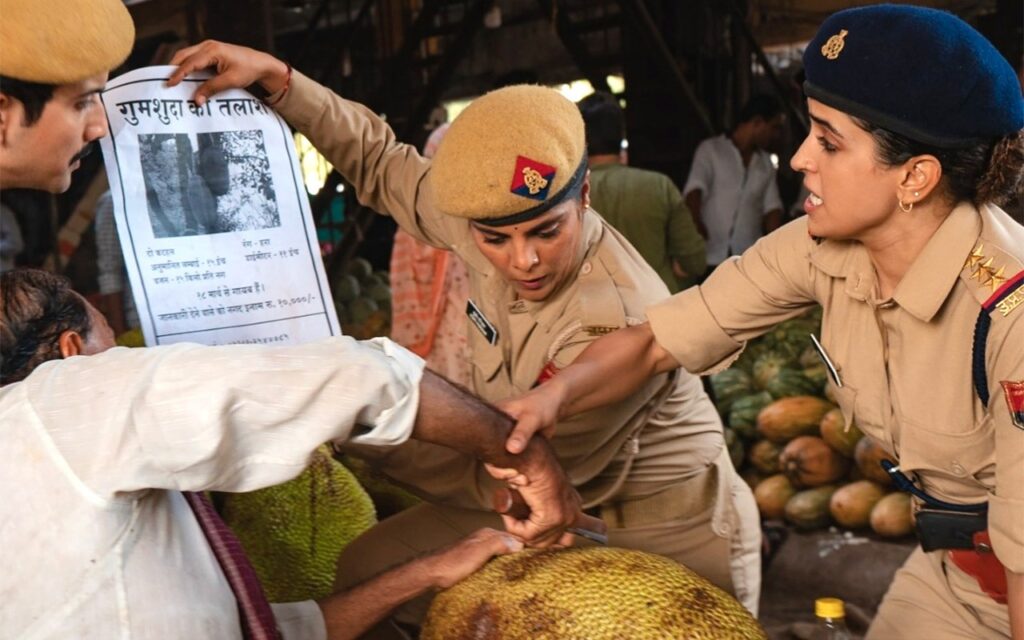
Mahima also finds greater recognition in the system with a ‘Respect Women‘ police programme. Through the programme, she aims to find other lost girls who have been neglected by the police force. All of these are instances of easy fixes to large problems that the film had set out to probe and satirise.
These series of directorial choices bring forth the important question of whether commercial cinema will ever take up a thoughtful representation of caste struggle or will it always continue to rely on safe and cheap humour under the guise of ‘popular demand.’ Here, Kathal is waylaid in its original intent of satirising corrupt and inequitable systems and instead loses the plot in its convoluted tale.
About the author(s)
Sakshi (she/they) is a student pursuing History at St. Stephen's College, Delhi University. They are interested in issues of gender, sexuality, education and culture. They love game nights, a good film and a sleeping in.
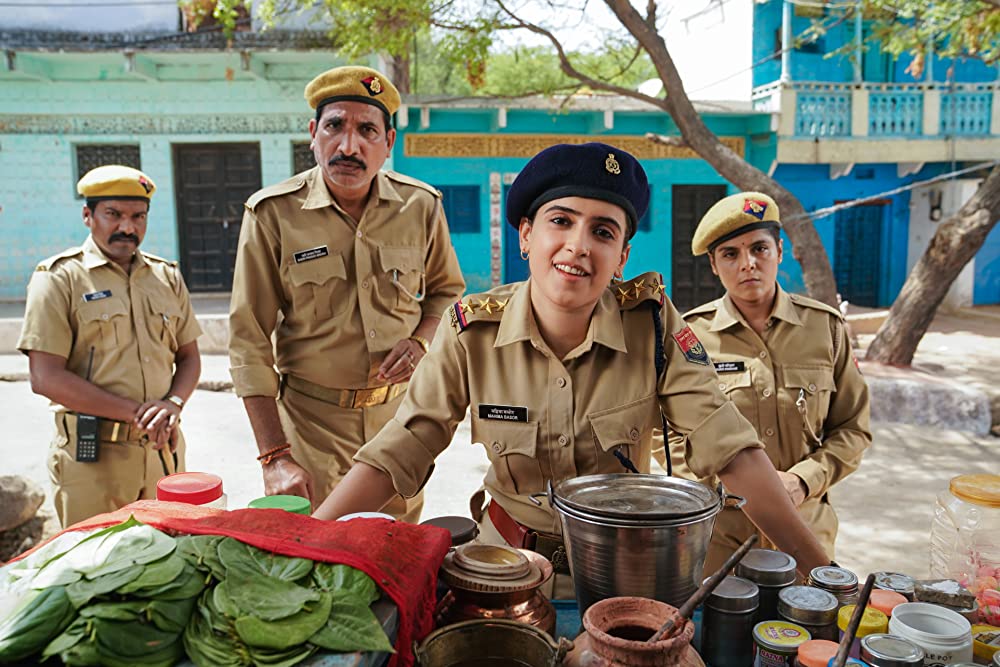


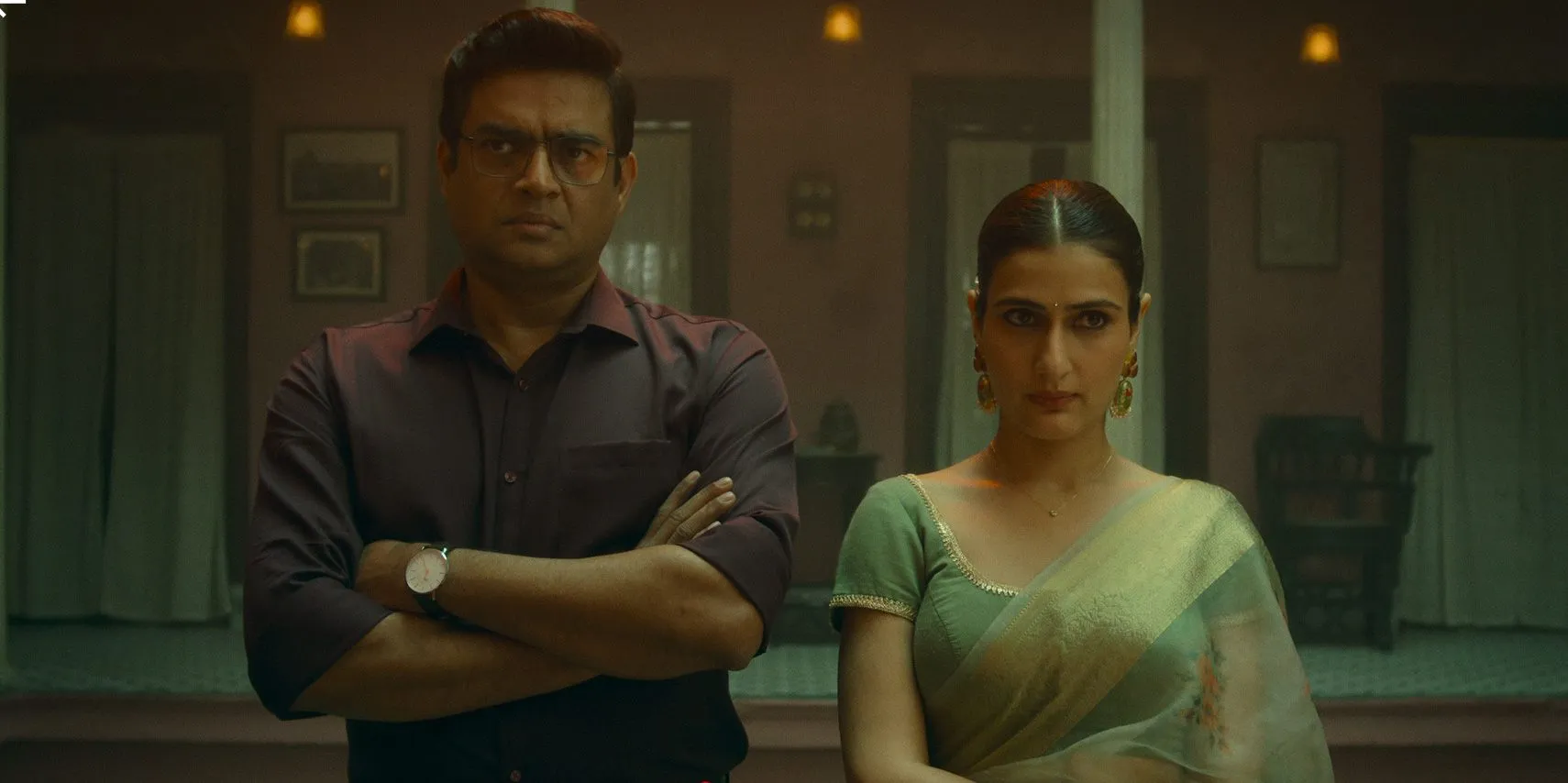



Film should be watched for enjoyment.